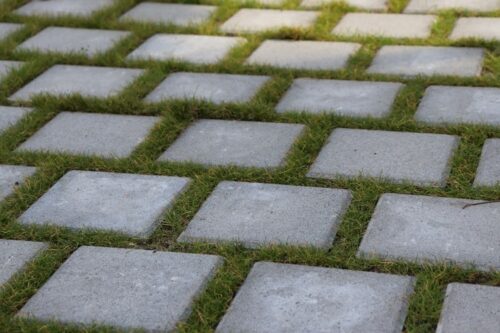What’s the best adhesive for porcelain?
Porcelain slabs require installers to adopt proven best practice when it comes to installation. However, once in place, they require little by the way of maintenance to preserve their sophisticated beauty as part of your outdoor space.
Porcelain slabs require installers to adopt proven best practice when it comes to installation.
However, once in place, they require little by the way of maintenance to preserve their sophisticated beauty as part of your outdoor space.
Adhesive for porcelain slabs is an essential part of their laying.
At a thickness of 20mm, these are large, heavy slabs and to ensure they remain in place, they need to be securely fixed. Indeed, they can’t be properly installed on a base without an appropriate porcelain slab adhesive that keeps them secure over the course their lifetime.
There are a number of porcelain slab adhesives on the market, some of which are suitable for porcelain slabs and others which are not. You can choose from pre-mixed and powdered forms.
The advantage of pre-mixed is that you can open the tub and use it immediately. However, it might not be the best choice. Many ready-mixed adhesives are not as strong as the powdered variant and while they are great for smaller ceramic tiles, they won’t have the strength to give your slabs the secure base they need.
Powdered tile adhesive may require more preparation because it needs to be mixed before use, but it is a much more reliable substance. Powdered tile adhesive creates a strong bond with any kind of surface, even the difficult non-porous type of porcelain pavers.
These adhesives are available in grey and white as well as other colours.
The best adhesive for porcelain slabs is modified thin-set mortar, which is also weather-resistant.
It is a far better alternative than adhesive substances like mastic or unmodified mortar, which do not contain the additives that ensure it is waterproof and can cope with fluctuating temperatures.
What is modified thin-set mortar?
This is a mortar that is created using Portland cement, fine sand, water, and latex additives.
It is the latex additives which give it the edge over unmodified mortar, and they ensure water absorption is greatly reduced and you get a stronger bond.
Mixing thin-set mortar
You need an electric drill, a paint paddle or mixer, and water. Check the instructions on your bag of mortar before you begin just in case you need to mix the powder with a latex liquid instead.
If you are mixing with water:
- Pour around two inches of clean water in a five-gallon bucket.
- Add a small amount of the thin-set powder.
- Thoroughly mix the water and powder together. Add more water, or powder, as necessary to create a paste of the same consistency as rich icing on a cake.
There are different ways of mixing your thin-set mortar, so be sure to check the manufacturer’s instructions. For example, you might have to allow the mixture to stand for a while before you apply it to a surface.
Porcelain paving from Forward Builders’ Supplies
Take a look at our premium porcelain paving range here.
Our selection is broad, and includes a long list of different colour and texture options – meaning we will have an ideal solution for your outdoor space.
Don’t forget to ask a member of our team if you have any questions about priming porcelain slabs.
Visit us at our Ellesmere Port site, or complete the form on our contact page and we’ll be in touch as soon as possible to help.










The information below is required for social login
Login
Register
Fill in the form below to create your new account